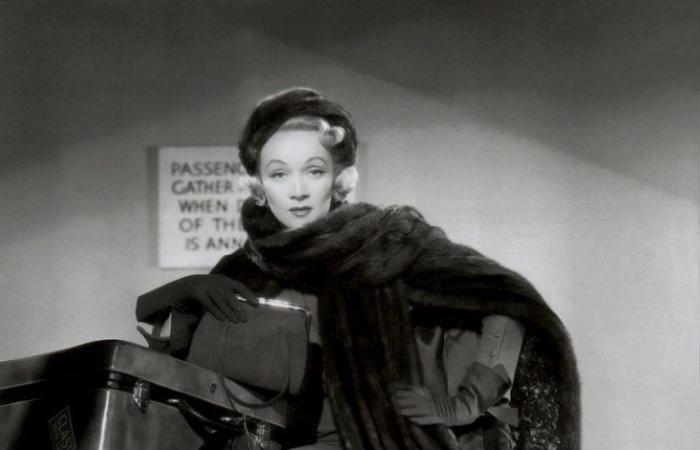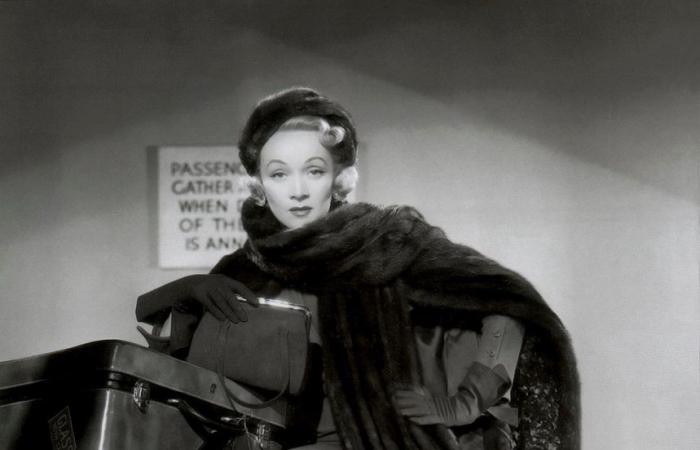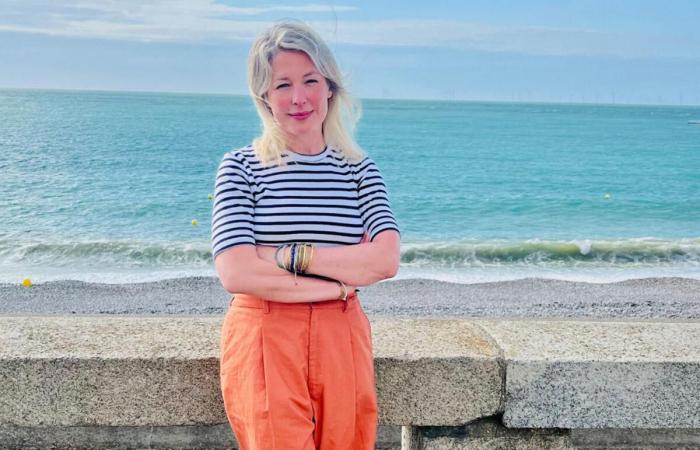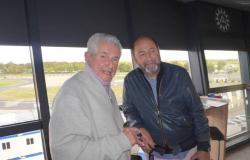– Should we “Give up travel” today?
Philosopher Juliette Morice looks at our homelessness. They have posed a problem since Antiquity. We are at the same point in 2024.
Published today at 12:26 p.m.
Marlene Dietrich took to the plane in 1951 for “No Highway in the Sky.”
DR.
Subscribe now and enjoy the audio playback feature.
BotTalk
There is a lot of talk about so-called “leisure” travel, to use a somewhat outdated term. Generally for the worse, I must say. When there is no question of “overtourism”, the debate today focuses on the “carbon footprint”. And the hyped press shows images of an overpopulated Venice or Florence. I’m coming back. I can tell you that if this is true for the city of the Medici, it is like a photographic acrobatics for that of the Doges. Outside of the actually busy streets, there is frankly no one.
“For Petrarch, traveling wastes time, money and temporarily his friends.”
Juliette Morice
Does “Give up travel”, the book that Juliette Morice released a few months ago, in turn cast anathemas on those who want to see the country? Not really. The book sees the situation from above, and especially from afar. Largely historical, it is due to an associate and doctor of philosophy (we know that philosophers are as numerous today as the locusts of biblical Egypt), its merit above all is that it shows a reality. Criticisms addressed to travel, and therefore to those who undertake it, are not new, or even the day before yesterday. This has been a problem since Antiquity. A time when it remained impossible to have a scratch map of the world country by country. I will cite a more modern example, since it dates back to the 14th century. For Petrarch, going far away means losing money, a lot of time and the bonds of true friendship. Better to stay at home. The poet had, however, wandered quite a bit.
The simple movement
But what exactly is a journey, the thing signifying both the means and the end? I reassure you right away, friend.exs of exhibitions outside Geneva or Lausanne. In the sense given to it by Juliette Morice, it is an expansion of space-time. Two components are necessary. Just one is not enough. You have to go outside your biotope, in other words today hundreds of kilometers away. Some time spent on site seems necessary. Taking the TGV to go to the Louvre while eating a sandwich on the train is a simple trip. Business travel is not really a business trip, and even the Ancients would have admitted that. The problem actually concerns more or less exotic vacations. Sunbathe in the Seychelles. Splash around in a Club Med. Party in Barcelona. Especially since this would be missing an essential component of respectable travel. The meeting of the Other, with a capital “A” please.
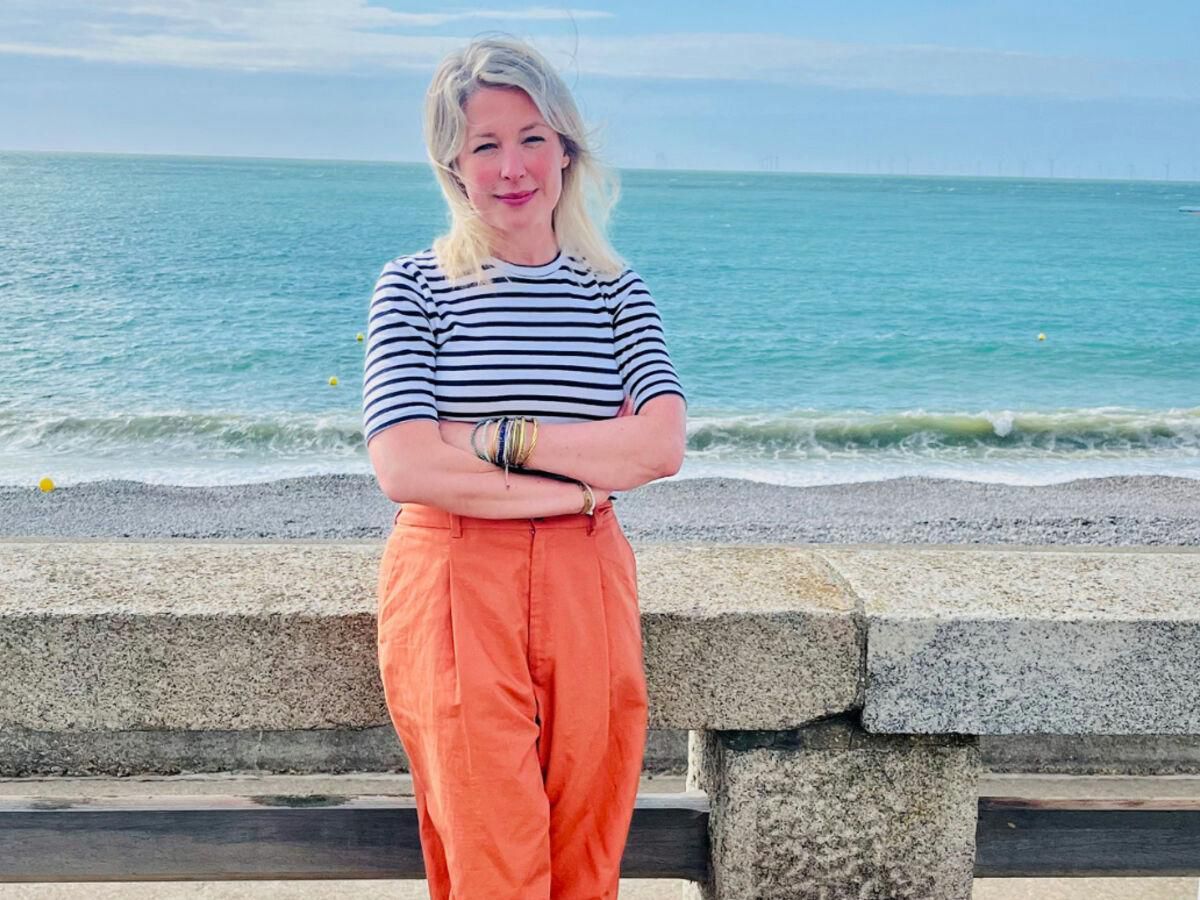
Juliette Morice… by the sea.
DR, Philosophy Magazine.
This type of contact remains in principle the practice of “frequent travelers”. These, recalls the author, constitute an aristocracy very (too?) conscious of its value. It is the world of Nicolas Bouvier and Ella Maillart that Juliette Morice often cites even though she teaches at Le Mans. The Swiss dominate here, as in the past in tennis. But they themselves arrived after others. The journey nowadays by definition follows in the footsteps of predecessors. Should it therefore be remade? Chateaubriand, who was nevertheless a curmudgeon, already doubted it. His contemporary Xavier de Maistre praised as early as 1794 the “trips around his room”, reading stories from explorers. The pioneering move would have been done once and for all. So you might as well dream in comfort, at a time when stagecoaches did not offer the comfort of a Eurostar in first class. We see it. The idea of a purely virtual trip did not wait until the 21st century.
Stay close to home
What does Juliette Morice deduce from this, after piling up the quotes like a good academic? Not much, ultimately. Everyone has their own truth, and this volume is obviously not intended for mile-eaters and souvenir photo Stakhanovists. In any case, what the book doesn’t talk about, the Planet seems to be shrinking in every way. There are more countries at war and more airport strikes to keep you grounded. Better to take a walk near your home, which several people I know do. Switzerland is, after all, very beautiful even if there is no sea. The beautiful yellow postal bus happily replaces the car there. It remains to be seen if it is already a trip, or if we are still staying too close to home. Very far, therefore, from a Bouvier, a Maillart or an Annemarie Schwarzenbach, who died in Graubünden following a… bicycle accident.
Practical
“Giving up travel, A philosophical investigation”, by Juliette Morice, Editions PUF, 248 pages.
“Etienne Dumont’s week”
Every Friday, find the cultural news sketched by the famous journalist.
Other newsletters
Log in
Born in 1948, Etienne Dumont studied in Geneva which were of little use to him. Latin, Greek, law. A failed lawyer, he turned to journalism. Most often in the cultural sections, he worked from March 1974 to May 2013 at the “Tribune de Genève”, starting by talking about cinema. Then came fine arts and books. Other than that, as you can see, nothing to report.More info
Did you find an error? Please report it to us.

